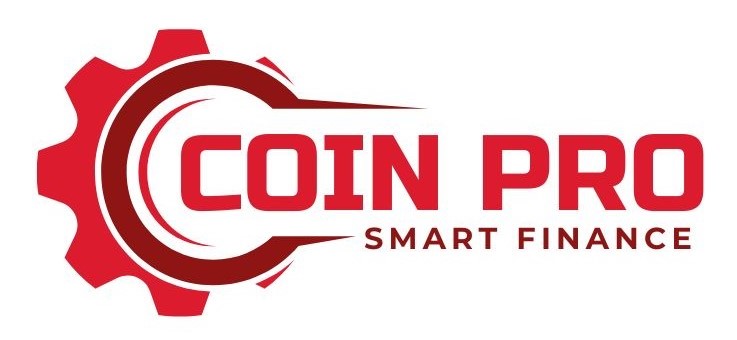The Role of AI in Smart Contracts and DeFi
The rise of blockchain technology has revolutionized the financial sector, bringing forth innovative concepts like smart contracts and decentralized finance (DeFi). These technologies have transformed traditional financial systems by promoting decentralization, transparency, and automation. However, with the increasing complexity of these systems, artificial intelligence (AI) has emerged as a powerful tool to enhance the efficiency, security, and scalability of smart contracts and DeFi platforms. This article explores the role of AI in these two crucial aspects of blockchain technology and its potential to drive the future of finance.
Understanding Smart Contracts and DeFi
Before delving into the role of AI, it is essential to understand the concepts of smart contracts and DeFi.
A smart contract is a self-executing contract with the terms of the agreement directly written into lines of code. These contracts automatically execute, control, or document legally relevant events and actions according to the terms of the contract, without the need for intermediaries. Smart contracts are most commonly deployed on blockchain platforms like Ethereum, where their immutability and transparency make them secure and reliable.
Decentralized Finance (DeFi), on the other hand, refers to a set of financial services and products that operate on decentralized networks, primarily using blockchain technology. DeFi platforms aim to recreate and improve upon traditional financial services like lending, borrowing, insurance, and trading, but without intermediaries such as banks. DeFi protocols rely heavily on smart contracts to automate transactions and ensure security and transparency.
AI’s Role in Enhancing Smart Contracts
AI can significantly improve the functionality and security of smart contracts in several ways.
1. Automating Contract Audits
Smart contracts are created based on code, and even minor errors in the code can lead to significant vulnerabilities. Traditional methods of auditing smart contracts are manual and time-consuming. AI can automate the auditing process by using machine learning algorithms to analyze the contract code for common vulnerabilities, bugs, and security risks. AI models can scan large codebases and quickly identify potential flaws, significantly reducing the risk of exploits and ensuring that smart contracts operate as intended.
2. Predictive Analytics for Contract Execution
Smart contracts are designed to trigger specific actions when predefined conditions are met. However, some contracts may require more complex decision-making processes, especially in dynamic environments. AI can be used to incorporate predictive analytics into smart contracts, enabling them to anticipate future events or changes in conditions and adjust contract terms accordingly. For example, AI-powered smart contracts could predict market fluctuations and adjust collateral requirements in lending protocols based on predicted price movements.
3. Personalization of Contracts
While smart contracts are often standardized, AI can enable more personalized agreements. Through the analysis of data from past transactions, user behavior, and other variables, AI can help design dynamic contracts tailored to the specific needs of individuals or organizations. This is particularly useful in DeFi platforms where users may require customized lending terms or insurance policies based on their risk profile, investment history, or market conditions.
AI’s Contribution to Decentralized Finance (DeFi)
AI’s role in DeFi is equally transformative, particularly in the areas of efficiency, scalability, and risk management.
1. Enhanced Risk Management
In DeFi platforms, managing risk is crucial, especially due to the high volatility of cryptocurrencies and the complexity of decentralized systems. AI can play a key role in improving risk assessment models by analyzing vast amounts of historical data and identifying patterns that humans may overlook. Machine learning algorithms can assess the creditworthiness of users, predict market trends, and calculate risk-adjusted returns more accurately than traditional models. AI-driven tools can also help predict the likelihood of liquidations, thereby preventing systemic risks and ensuring the stability of DeFi platforms.
2. Optimizing Liquidity and Market Efficiency
AI can enhance the liquidity of DeFi platforms by developing intelligent market-making algorithms. These algorithms can automatically adjust to market conditions, ensuring that liquidity is available when needed. AI can analyze market trends in real-time and predict demand for certain tokens or assets, allowing DeFi platforms to offer more competitive interest rates, liquidity pools, and trading fees. Additionally, AI can help DeFi protocols optimize gas fees by predicting network congestion and adjusting transaction strategies accordingly.
3. Fraud Detection and Security
Security is a paramount concern in the DeFi ecosystem, where assets are stored in decentralized wallets, and transactions occur without intermediaries. AI can bolster security by detecting fraudulent activities such as rug pulls, flash loan attacks, and other malicious behaviors. By analyzing transaction patterns, AI models can identify suspicious activities and raise alerts before significant damage occurs. AI can also assist in monitoring the health of smart contracts, ensuring that they are operating in a secure and reliable manner.
4. Automated Trading and Arbitrage
AI-powered bots are increasingly being used for automated trading in DeFi platforms. These bots use machine learning models to analyze market data and execute trades based on predefined strategies. AI can also facilitate arbitrage opportunities, where bots can exploit price discrepancies between different DeFi platforms or between DeFi and centralized exchanges. By automating these processes, AI can help investors take advantage of market inefficiencies in real-time, maximizing returns without manual intervention.
The Future of AI, Smart Contracts, and DeFi
The combination of AI with smart contracts and DeFi platforms holds great promise for the future of finance. As blockchain technology continues to evolve, the integration of AI is expected to become more sophisticated, leading to new innovations and opportunities.
For example, decentralized autonomous organizations (DAOs), which are governed by smart contracts and community voting, could leverage AI to make more informed and objective decisions. AI could analyze vast amounts of data and provide real-time insights to help DAOs make better governance decisions, whether it’s choosing investment strategies or allocating funds.
Furthermore, the adoption of AI can help DeFi platforms scale more efficiently. AI can optimize the infrastructure behind decentralized exchanges (DEXs), enabling them to handle higher transaction volumes and provide more seamless user experiences. Additionally, AI can facilitate cross-chain interoperability, allowing DeFi applications to communicate with each other more effectively and expand their reach beyond a single blockchain.
Challenges and Ethical Considerations
Despite its immense potential, the integration of AI in smart contracts and DeFi does present some challenges. One of the main concerns is the lack of transparency in AI decision-making. AI algorithms, especially those based on machine learning, can sometimes operate as “black boxes,” making it difficult for users to understand how decisions are made. This lack of transparency could undermine the trust that users place in DeFi platforms and smart contracts.
Moreover, the reliance on AI raises ethical questions about accountability and bias. If an AI model makes a decision that negatively impacts a user or causes a financial loss, determining who is responsible can be complex. Additionally, AI models trained on biased data could inadvertently perpetuate existing inequalities or make unfair decisions.
Conclusion
Artificial intelligence is playing an increasingly important role in enhancing the functionality of smart contracts and the efficiency of decentralized finance. By automating contract audits, optimizing risk management, enhancing liquidity, and improving security, AI is helping to shape the future of decentralized finance. However, its integration also brings challenges, particularly around transparency, accountability, and bias. As AI continues to evolve, its role in smart contracts and DeFi will likely become even more integral, helping to create a more efficient, secure, and personalized financial ecosystem.


